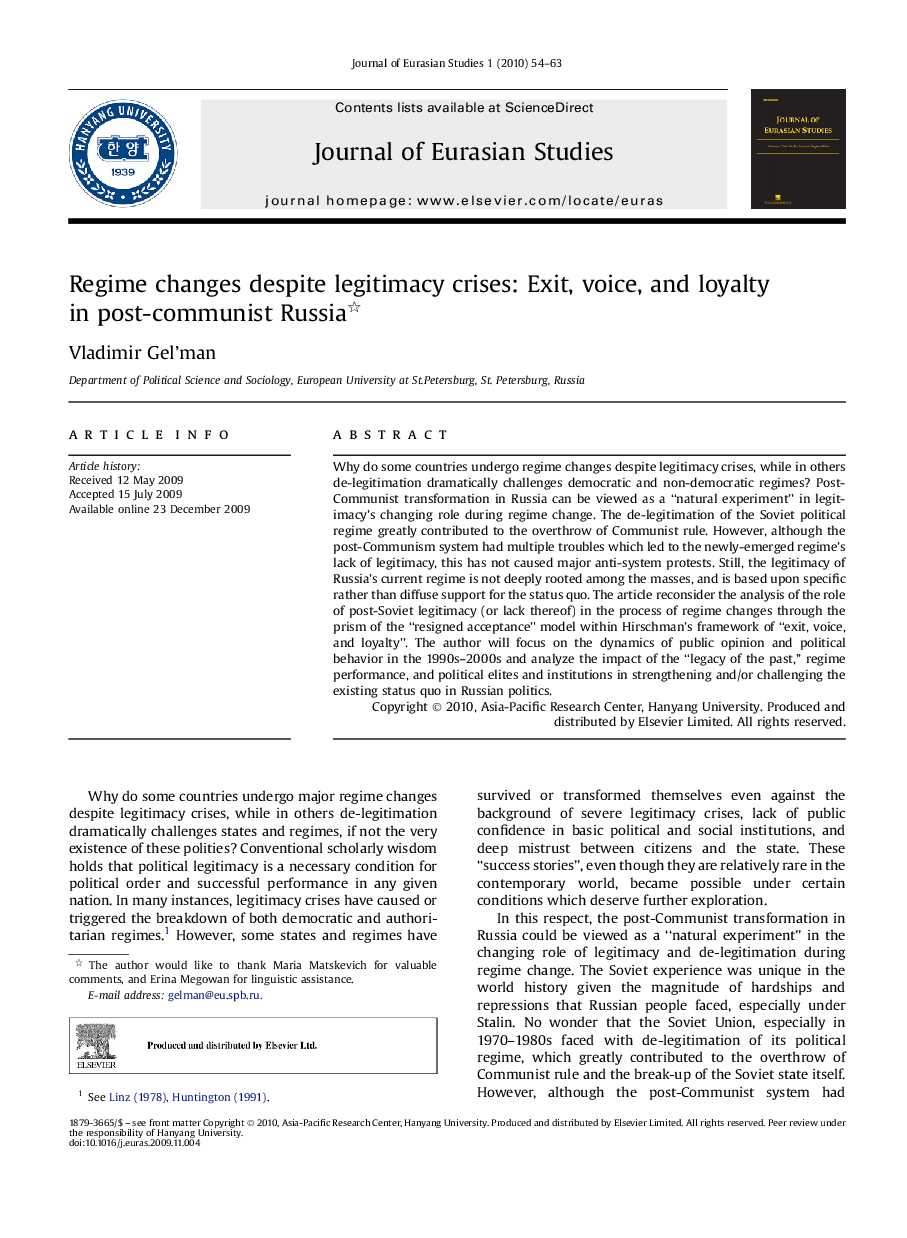| Article ID | Journal | Published Year | Pages | File Type |
|---|---|---|---|---|
| 1127338 | Journal of Eurasian Studies | 2010 | 10 Pages |
Why do some countries undergo regime changes despite legitimacy crises, while in others de-legitimation dramatically challenges democratic and non-democratic regimes? Post-Communist transformation in Russia can be viewed as a “natural experiment” in legitimacy's changing role during regime change. The de-legitimation of the Soviet political regime greatly contributed to the overthrow of Communist rule. However, although the post-Communism system had multiple troubles which led to the newly-emerged regime's lack of legitimacy, this has not caused major anti-system protests. Still, the legitimacy of Russia's current regime is not deeply rooted among the masses, and is based upon specific rather than diffuse support for the status quo. The article reconsider the analysis of the role of post-Soviet legitimacy (or lack thereof) in the process of regime changes through the prism of the “resigned acceptance” model within Hirschman's framework of “exit, voice, and loyalty”. The author will focus on the dynamics of public opinion and political behavior in the 1990s–2000s and analyze the impact of the “legacy of the past,” regime performance, and political elites and institutions in strengthening and/or challenging the existing status quo in Russian politics.
